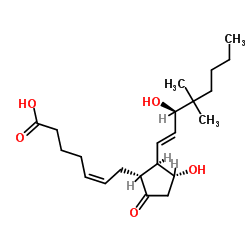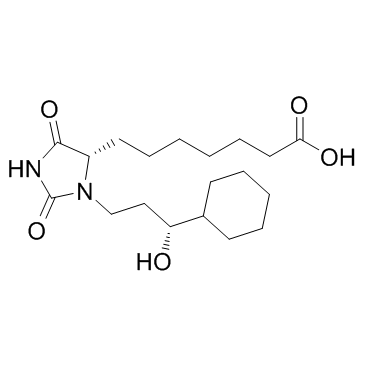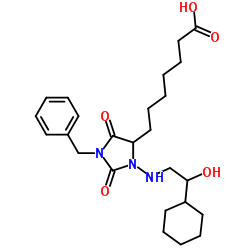| Structure | Name/CAS No. | Articles |
|---|---|---|
 |
16,16-Dimethyl prostaglandin E2
CAS:39746-25-3 |
|
 |
BW 245C
CAS:72814-32-5 |
|
 |
BW A868C
CAS:118675-50-6 |